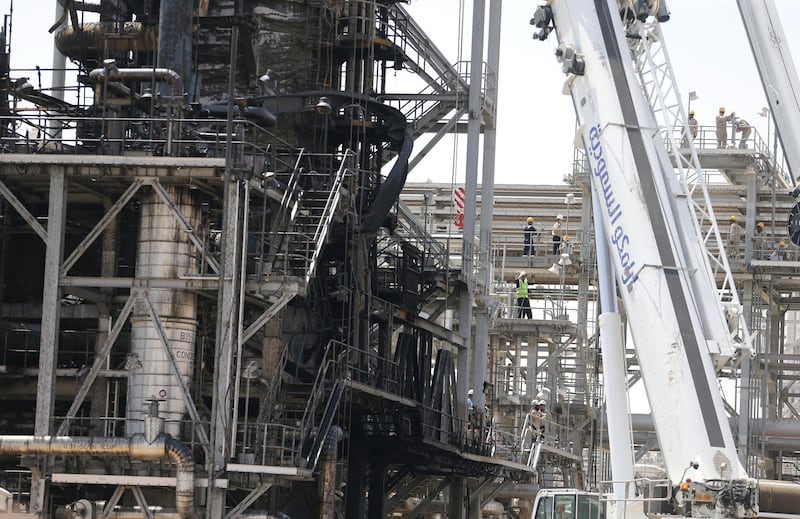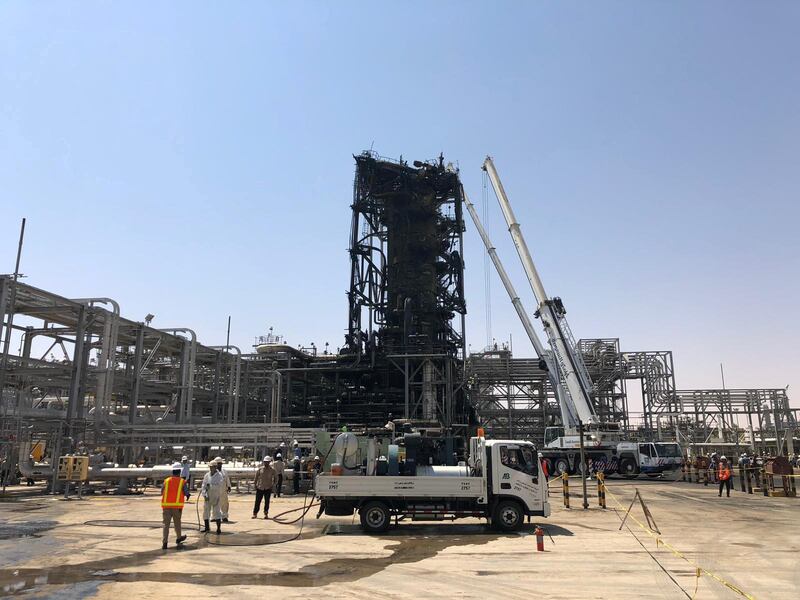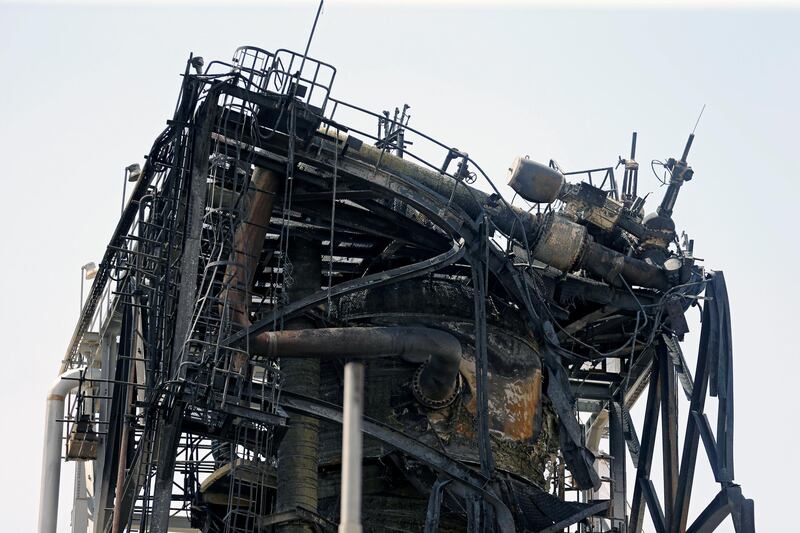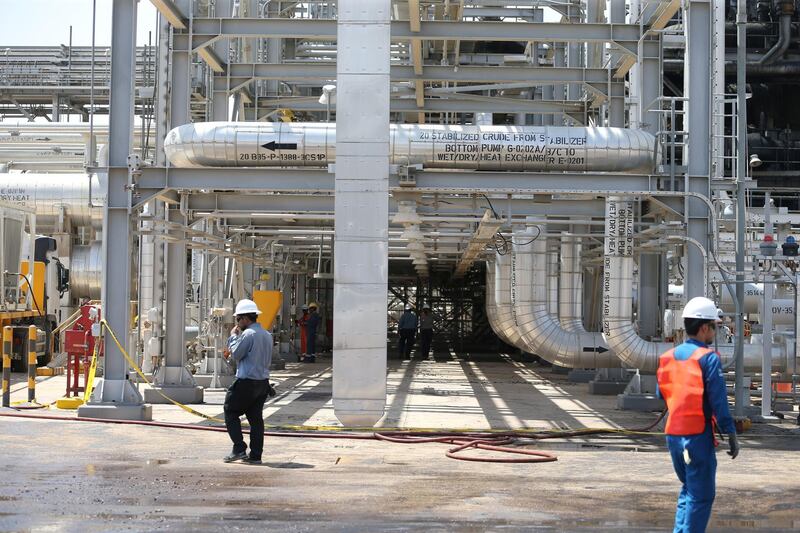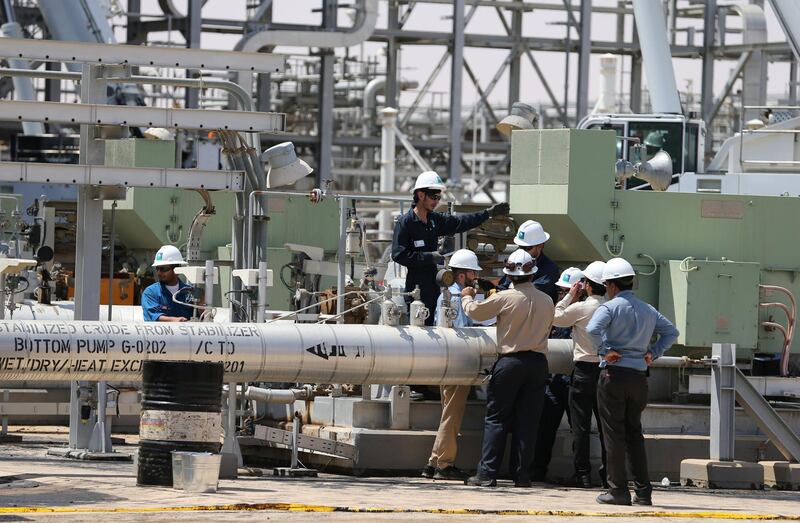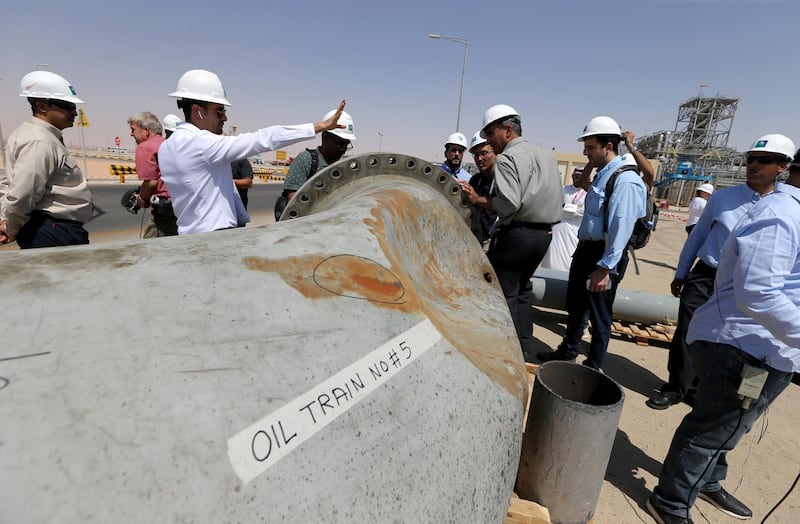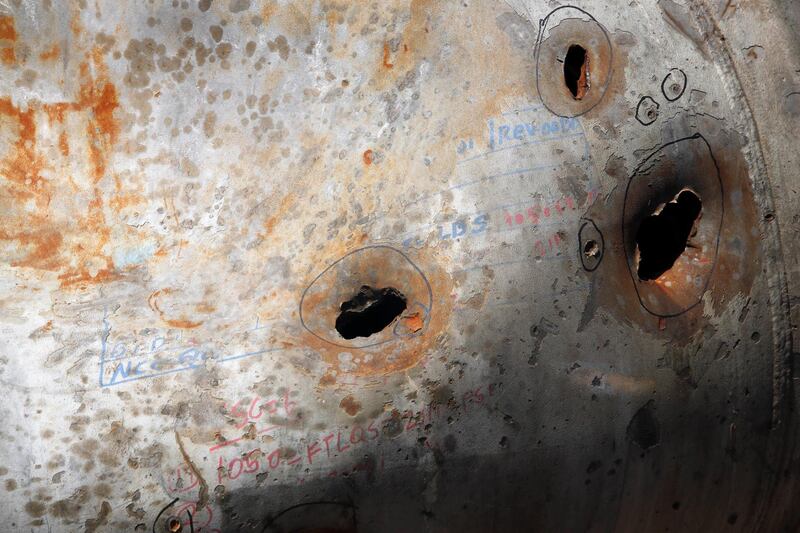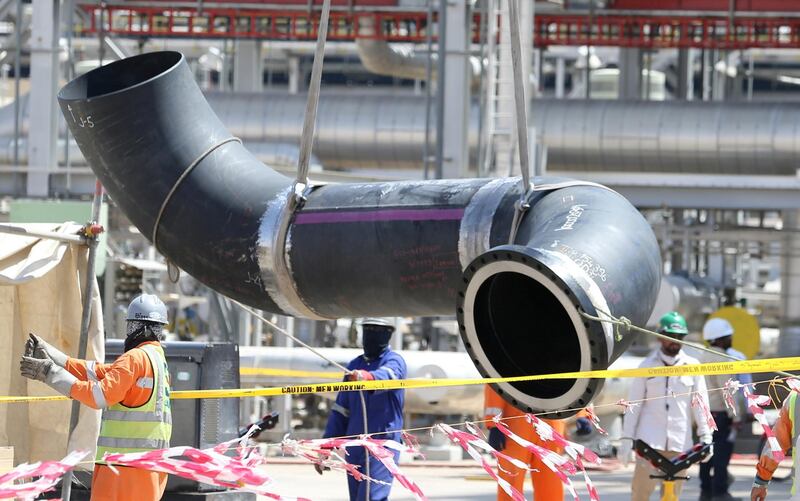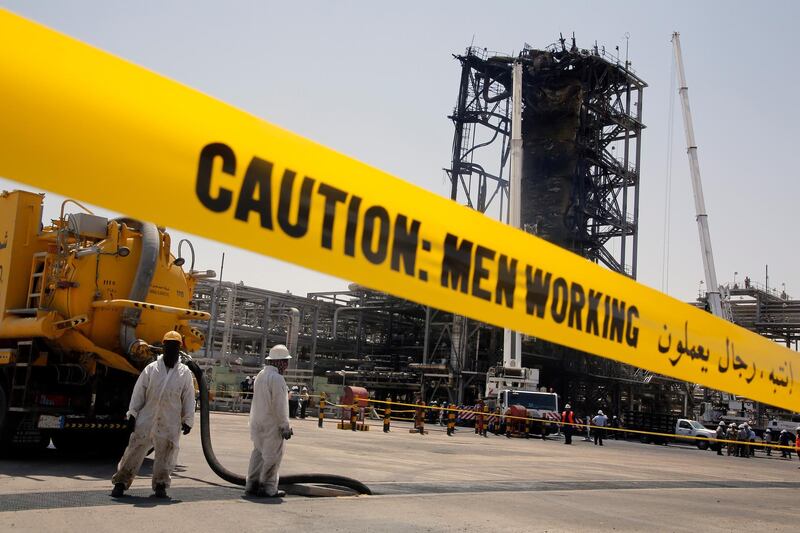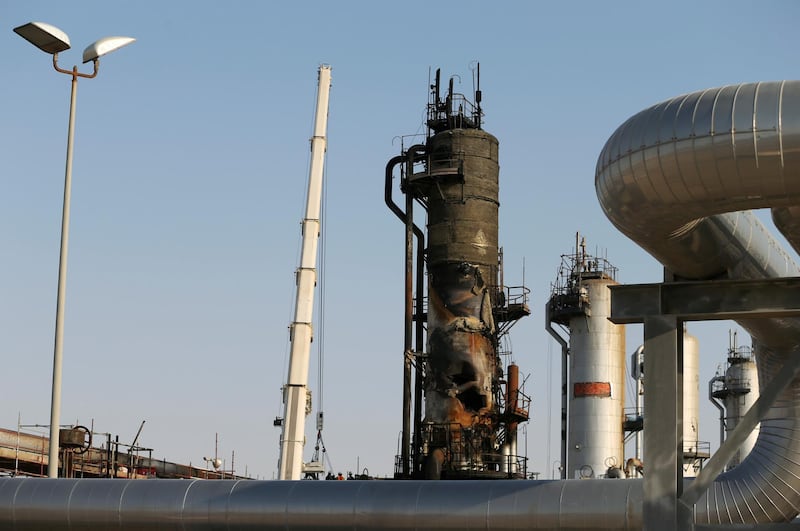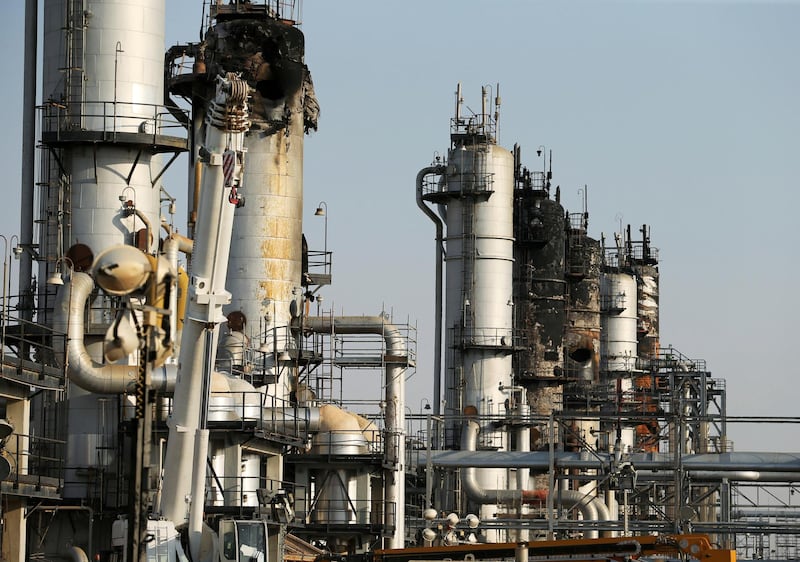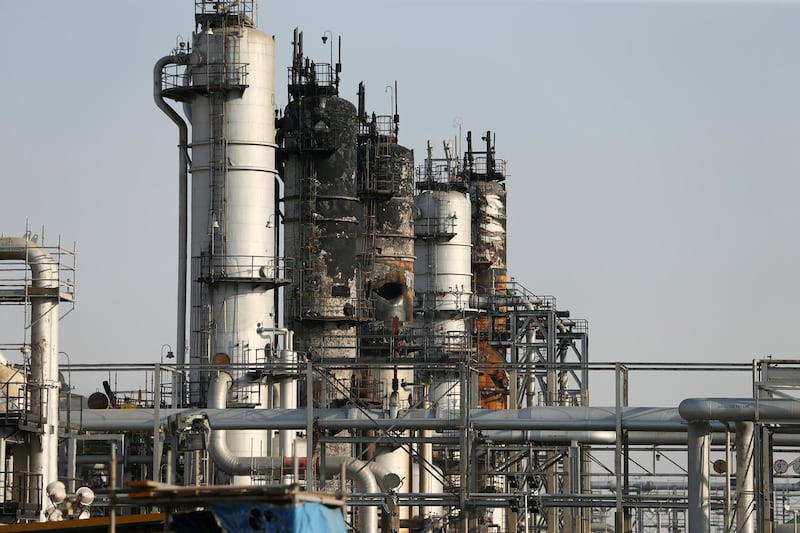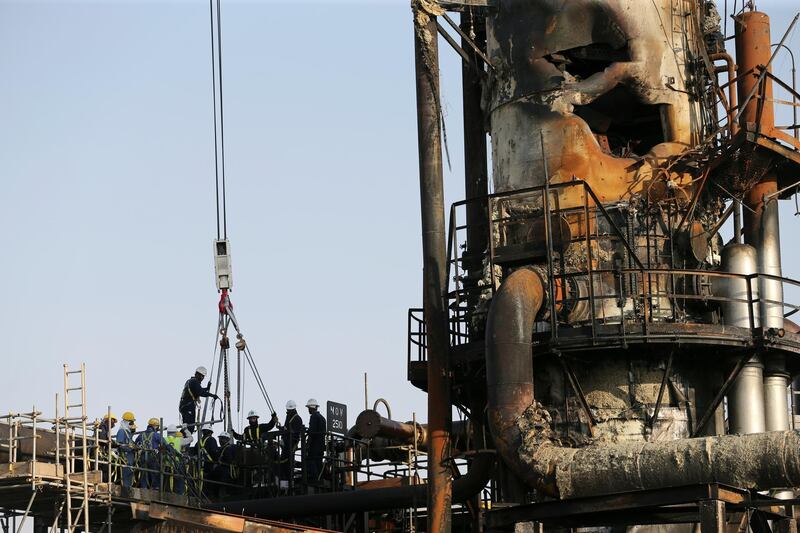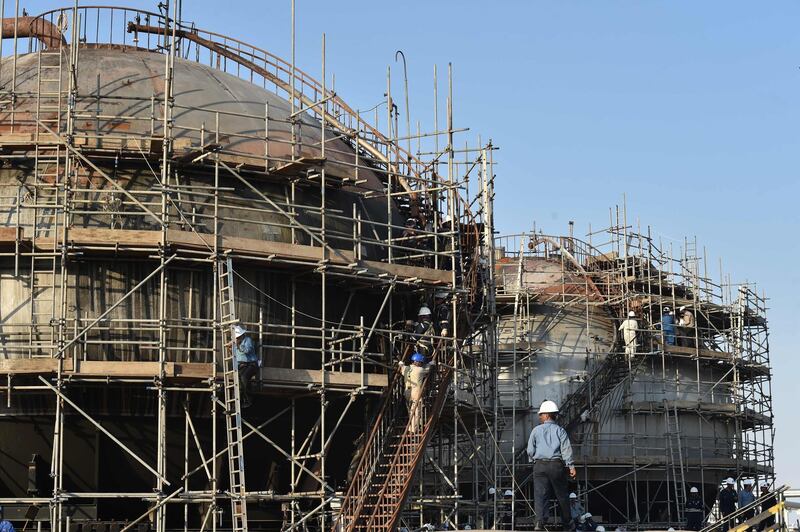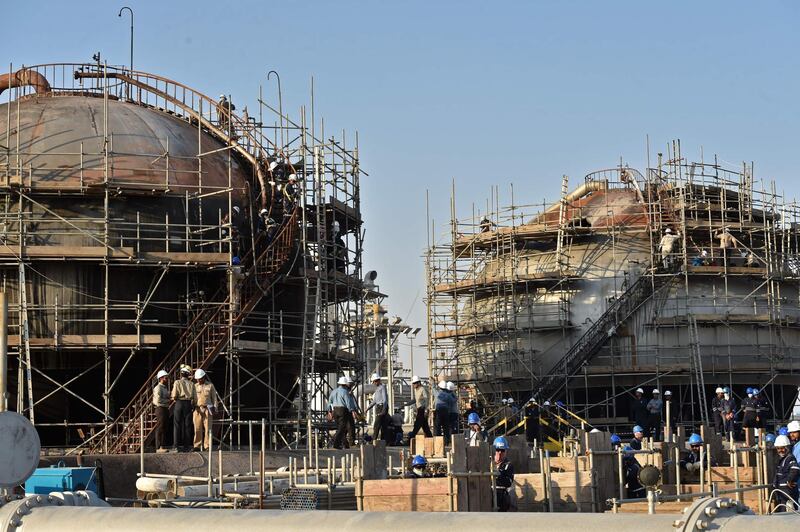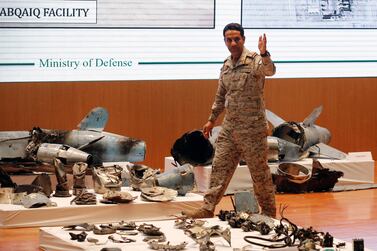Attacks on Saudi petrochemical facilities could continue unless there is a concerted international response, Saudi Aramco's chief executive Amin Nasser said on Wednesday.
In September, a combined drone and missile attack on oil processing facilities at Abqaiq and Khurais in eastern Saudi Arabia caused oil prices to increase by 20 per cent and knocked out over 5 per cent of global supply.
"An absence of international resolve to take concrete action may embolden the attackers and indeed put the world's energy security at greater risk," Mr Nasser said at the Oil & Money conference in London.
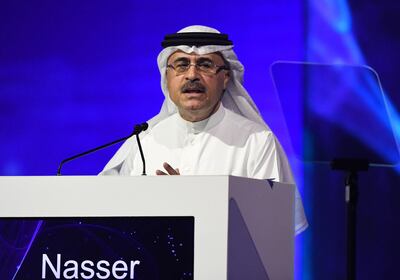
He said that Aramco, the state-owned oil company, was on track to regain its maximum oil production capacity of 12 million barrels per day by the end of November following the September 14 attack.
The chief executive of Aramco's trading unit said at the start of October that the company had restored oil production to pre-attack levels of 9.7 million barrels per day.
But he also said that they would need to increase this number to rebuild strategic reserves used during the crisis to keep the flow of exports steady.
Yemen's Houthi rebels claimed responsibility for the September attacks but Saudi Arabia and the United States ruled out their involvement, and instead blamed Iran.
Last month, the kingdom's military showed remnants of the weapons used that it said showed clear Iranian involvement.
Saudi Crown Prince Mohammed bin Salman described the incident as an "act of war" by Iran but stressed that it should be treated as a political matter rather than a military one.
He too warned the international community of further incidents unless the world takes strong action to deter Tehran.

